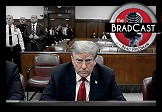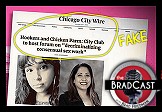 There has been much debate over the last several weeks over the inaccurate use of scenes of torture in the new film Zero Dark Thirty to suggest that so-called "enhanced interrogation techniques" were key to the capture and ultimate killing of Osama Bin Laden. (See "Zero Dark Thirty's Wrong and Dangerous Conclusion" by Oscar-winning documentarian Alex Gibney, for example, or Glenn Greenwald's "Zero Dark Thirty: new torture-glorifying film wins raves", which asks "Can a movie that relies on fabrications to generate support for war crimes still be considered great?")
There has been much debate over the last several weeks over the inaccurate use of scenes of torture in the new film Zero Dark Thirty to suggest that so-called "enhanced interrogation techniques" were key to the capture and ultimate killing of Osama Bin Laden. (See "Zero Dark Thirty's Wrong and Dangerous Conclusion" by Oscar-winning documentarian Alex Gibney, for example, or Glenn Greenwald's "Zero Dark Thirty: new torture-glorifying film wins raves", which asks "Can a movie that relies on fabrications to generate support for war crimes still be considered great?")
Beyond the question of whether it is appropriate or not to use blatantly false and misleading "dramatic license" in a theatrical film which it's filmmaker describes as employing "almost a journalistic approach to film", there is another troubling issue that seems to be getting lost in the debate.
It is disturbing, if not altogether surprising, to find an article on the front page of the Los Angeles Times recently, discussing the film, and its related "debate" amongst Democrats and Republicans on the U.S. Senate Intelligence over "the value of 'enhanced interrogation techniques.'"
The topic is one we have covered extensively here at The BRAD BLOG --- coverage that has included a five-part series on the history of CIA torture and a dire warning that the very survival of our Constitutional Democracy could hinge on justified prosecutions of those who previously ordered or engaged in torture.
In early 2009, in "Fixing the Facts and Legal Opinions Around the Torture Policy," I took dead aim at the sophistry employed by President Barack Obama to evade his constitutionally mandated obligation to see that the laws are faithfully executed. The same Harvard Law School-educated President who said that, in torture, America had lost its "moral bearings," suggested we must only look forward, not back. As I noted at the time, it was an "illogical formulation [that] was incompatible with the very essence of the rule of law."
Those prosecutions were not forthcoming, and, as a result, we find two writers at Los Angeles Times discussing the dispute triggered by the movie, Zero Dark Forty, over the efficacy of torture without so much as a passing reference to the fact that torture is a crime under both U.S. and international law.
This woefully deficient "coverage" drew a sharp and very personal response, given my family's history, by way of a Letter to the Editor I wrote to the paper, which they recently edited, and then published...
My letter/response to Los Angeles Times follows:
In Dec. 1941 my father was waterboarded by the Japanese in Shanghai. Even though he thought he was signing his own death warrant, he confessed that he was a British agent. It wasn’t true, but, at that moment, he would have signed anything just to end his ordeal.
Irrespective of whether the information garnered by torture turns out to be true, and there’s no way at the time to know, torture is a crime under both U.S. law and international treaties. In 1948 the Japanese officer responsible for waterboarding my father was tried and convicted at the war crimes trials in Hong Kong. That same standard should be applied to the Americans who ordered or took part in waterboarding.
In a reply email, Los Angeles Times Letters Editor Paul Thornton advised me that an edited version of the above letter was "scheduled for publication in Sunday's Los Angeles Times." The edited version did not include my criticism of the paper's failure to mention the legal issue in its coverage of the story.
Instead, the first line, published on Dec. 16, reads: “I am deeply troubled that anyone would suggest there's a debate on the efficacy of torture.”


 SCOTUS Suddenly Worried About Overcriminalization ... for J6 Insurrectionists: 'BradCast' 4/17/24
SCOTUS Suddenly Worried About Overcriminalization ... for J6 Insurrectionists: 'BradCast' 4/17/24 'Trump Media' Plummeting, MAGA Buyers Losing Life Savings: 'BradCast' 4/16/24
'Trump Media' Plummeting, MAGA Buyers Losing Life Savings: 'BradCast' 4/16/24 'Green News Report' 4/16/24
'Green News Report' 4/16/24
 Trump's First Criminal Trial, for Cheating in 2016, Begins in NY: 'BradCast' 4/15/24
Trump's First Criminal Trial, for Cheating in 2016, Begins in NY: 'BradCast' 4/15/24 Sunday 'Party Like It's 1864' Toons
Sunday 'Party Like It's 1864' Toons Biden Closes 'Gun Show Loophole'; Repubs Turn Desperate: 'BradCast' 4/11/24
Biden Closes 'Gun Show Loophole'; Repubs Turn Desperate: 'BradCast' 4/11/24  'Green News Report' 4/11/24
'Green News Report' 4/11/24 'Pink Slime': Fake 'Local News' Sites Proliferating in Advance of Election: 'BradCast' 4/10/24
'Pink Slime': Fake 'Local News' Sites Proliferating in Advance of Election: 'BradCast' 4/10/24 Dirty Tricks and the Dirtiest Candidate Of All Time: 'BradCast' 4/9/24
Dirty Tricks and the Dirtiest Candidate Of All Time: 'BradCast' 4/9/24 'Green News Report' 4/9/24
'Green News Report' 4/9/24 'Titanic Law' Reform Just Tip of Iceberg in Quest for Key Bridge Accountability: 'BradCast' 4/8/24
'Titanic Law' Reform Just Tip of Iceberg in Quest for Key Bridge Accountability: 'BradCast' 4/8/24 Sunday 'Dark Days Indeed' Toons
Sunday 'Dark Days Indeed' Toons Trump's Very Bad Day in Court(s), Other Good (& Less Good) News: 'BradCast' 4/4
Trump's Very Bad Day in Court(s), Other Good (& Less Good) News: 'BradCast' 4/4 'Green News Report' 4/4/24
'Green News Report' 4/4/24 WI Supremes May Restore Drop-Box Voting
WI Supremes May Restore Drop-Box Voting WI Voters Approve Election Crippling Ballot Measures: 'BradCast' 4/3/24
WI Voters Approve Election Crippling Ballot Measures: 'BradCast' 4/3/24  Politico's Josh Gerstein Owes a Retraction
Politico's Josh Gerstein Owes a Retraction More GOP Election Fraud; Overdue Justice for Crystal Mason: 'BradCast' 4/2/24
More GOP Election Fraud; Overdue Justice for Crystal Mason: 'BradCast' 4/2/24 Last Week Today with OG Bloggers:
Last Week Today with OG Bloggers: It's Up to You, New York: 'BradCast' 3/21/24
It's Up to You, New York: 'BradCast' 3/21/24 'It All Comes Down to Brett and Amy': 'BradCast' 3/20/24
'It All Comes Down to Brett and Amy': 'BradCast' 3/20/24 American 'Bloodbath': 'BradCast' 3/19/24
American 'Bloodbath': 'BradCast' 3/19/24
 VA GOP VOTER REG FRAUDSTER OFF HOOK
VA GOP VOTER REG FRAUDSTER OFF HOOK Criminal GOP Voter Registration Fraud Probe Expanding in VA
Criminal GOP Voter Registration Fraud Probe Expanding in VA DOJ PROBE SOUGHT AFTER VA ARREST
DOJ PROBE SOUGHT AFTER VA ARREST Arrest in VA: GOP Voter Reg Scandal Widens
Arrest in VA: GOP Voter Reg Scandal Widens ALL TOGETHER: ROVE, SPROUL, KOCHS, RNC
ALL TOGETHER: ROVE, SPROUL, KOCHS, RNC LATimes: RNC's 'Fired' Sproul Working for Repubs in 'as Many as 30 States'
LATimes: RNC's 'Fired' Sproul Working for Repubs in 'as Many as 30 States' 'Fired' Sproul Group 'Cloned', Still Working for Republicans in At Least 10 States
'Fired' Sproul Group 'Cloned', Still Working for Republicans in At Least 10 States FINALLY: FOX ON GOP REG FRAUD SCANDAL
FINALLY: FOX ON GOP REG FRAUD SCANDAL COLORADO FOLLOWS FLORIDA WITH GOP CRIMINAL INVESTIGATION
COLORADO FOLLOWS FLORIDA WITH GOP CRIMINAL INVESTIGATION CRIMINAL PROBE LAUNCHED INTO GOP VOTER REGISTRATION FRAUD SCANDAL IN FL
CRIMINAL PROBE LAUNCHED INTO GOP VOTER REGISTRATION FRAUD SCANDAL IN FL Brad Breaks PA Photo ID & GOP Registration Fraud Scandal News on Hartmann TV
Brad Breaks PA Photo ID & GOP Registration Fraud Scandal News on Hartmann TV  CAUGHT ON TAPE: COORDINATED NATIONWIDE GOP VOTER REG SCAM
CAUGHT ON TAPE: COORDINATED NATIONWIDE GOP VOTER REG SCAM CRIMINAL ELECTION FRAUD COMPLAINT FILED AGAINST GOP 'FRAUD' FIRM
CRIMINAL ELECTION FRAUD COMPLAINT FILED AGAINST GOP 'FRAUD' FIRM RICK SCOTT GETS ROLLED IN GOP REGISTRATION FRAUD SCANDAL
RICK SCOTT GETS ROLLED IN GOP REGISTRATION FRAUD SCANDAL VIDEO: Brad Breaks GOP Reg Fraud Scandal on Hartmann TV
VIDEO: Brad Breaks GOP Reg Fraud Scandal on Hartmann TV RNC FIRES NATIONAL VOTER REGISTRATION FIRM FOR FRAUD
RNC FIRES NATIONAL VOTER REGISTRATION FIRM FOR FRAUD EXCLUSIVE: Intvw w/ FL Official Who First Discovered GOP Reg Fraud
EXCLUSIVE: Intvw w/ FL Official Who First Discovered GOP Reg Fraud GOP REGISTRATION FRAUD FOUND IN FL
GOP REGISTRATION FRAUD FOUND IN FL


































